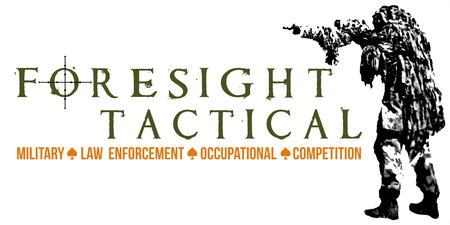The various members of our team have been involved with firearms professionally for anywhere from 15 - 25+ years, and many of our mentors have a great deal more experience than that. That collective experience has shaped our entire curriculum and training methodology, and has helped us reach a point where we can effectively enhance student performance in condensed time frames.
Using one of our instructors as an example, Ben was brought into the team for his general rifle marksmanship, aerial marksmanship, and gunsmithing abilities, but his pistol experience was almost non-existent. After 2 instructor development sessions, totalling maybe 4 hours, Ben would outshoot most of the self-designated or appointed "experts" we have encountered in the various agencies we have worked in, and this type of result is the norm. We have mentored quite a few instructors, who had very little experience, but went on to be among the top performers in their units.
On the student side of the house we have frequently encountered law enforcement students, struggling to meet qualification requirements, who have gone on to pass with flying colours after as little as 20 minutes of coaching with one of our instructors. We even know a military Non-Commissioned Officer (NCO) who says he learned more about marksmanship from a 20 minute chat with us in his office, than from the decade of military coaching he had received up to that point. Following that chat the NCO went and blitzed an advanced shoot he had been struggling with. Our results for the tasks that would be considered decision making and tactics, follow a similar pattern.
Frustratingly, we have found very few decision makers willing to take a good look at how we do things, but every now and again we encounter someone in a position of influence who is smart enough to see the value in what we are doing and brave enough to make meaningful improvement to "the way things have always been done". This results in a predictable pattern of success. So what does this success look like for a law enforcement agency? Well we have recently had quantifable data back from one such agency in the United States. Since implementing our methods three years ago they have; seen a 35% reduction in use of force incidents, had zero substantiated excessive force complaints, and successfully resolved 100% of lethal use of force encounters where the circumstances were not conducive to de-escalation. One of these incidents was particularly complex and the actions of the officers undoubtedly saved the lives of multiple innocent people, in a high density precinct. The officers directly credited the training they had received with their performance on the night.
There is a way to set frontline officers up for success, but it isn't the way things have always been done.

